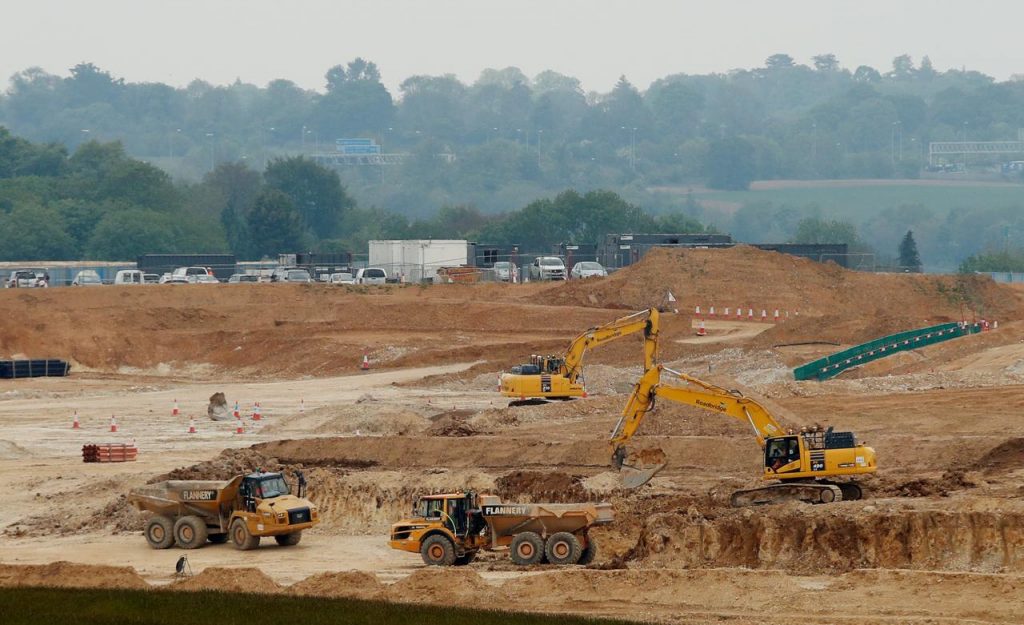Britain’s construction sector suffered by far its biggest contraction since the launch of widely followed survey of the industry 23 years ago as the coronavirus lockdown shuttered building sites and suppliers.
The construction Purchasing Managers’ Index (PMI), published by data firm IHS Markit and the Chartered Institute of Procurement and Supply (CIPS), slumped to 8.2 in April from 39.3 in March.
The previous low was 27.8, recorded during the depths of the financial crisis in 2009.
A Reuters poll of economists had pointed to a much less severe fall, to 22.0.
“The rapid plunge in UK construction output during April stands out even in a month of record-low PMI data for the manufacturing and service sectors,” Tim Moore, economics director at IHS Markit, said.
“Widespread site closures and business shutdowns across the supply chain meant that vast swathes of the construction sector halted all activity in response to the COVID-19 pandemic.”
The data also confirmed that Britain’s private sector as a whole shrank at fastest rate on record.
The Markit/CIPS all-sector PMI sank to 13.4, another all-time low, mirroring the previously announced falls in surveys for the British manufacturing and services sectors.
The construction sector survey showed a slump in new contracts as clients closed operations and expectations for the year ahead edged down to a joint record low.
Britain’s government did not require general construction work to stop to slow the spread of coronavirus, unlike its shutdown orders for much of the economy.
But many building companies reported stoppages in March as they sought to comply with guidance to keep workers 2 metres apart.
“A drop in construction activity of historic proportions in April looks set to be followed by a gradual reopening of sites in the coming weeks, subject to strict reviews of safety measures,” Moore said.
“However, the prospect of severe disruption across the supply chain will continue over the longer-term and widespread use of the government job retention scheme has been needed to cushion the impact on employment.”


